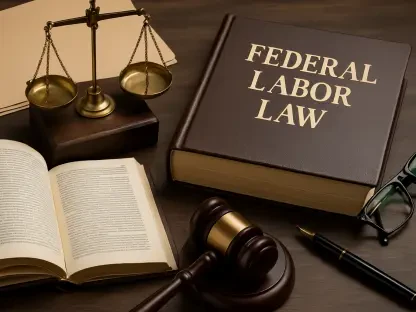The legal battle between King Soopers, one of the largest grocery chains in Colorado, and the United Food and Commercial Workers (UFCW) Local 7 union has entered a critical phase, with both sides entrenched in their positions. King Soopers has initiated a lawsuit against UFCW Local 7, accusing the union of attempting to coerce the grocery chain into unlawful multi-union bargaining. The company’s lawsuit alleges that UFCW Local 7’s actions infringed the National Labor Relations Act, involving a series of coercive and threatening actions aimed at forcing King Soopers into negotiations that included other unions not representing its workers.
The Lawsuit and Its Allegations
Filed in the U.S. District Court for the District of Colorado, King Soopers’ lawsuit contends that UFCW Local 7’s actions are part of a more extensive effort to establish a nationwide multi-union bargaining framework. This proposed framework would encompass other significant UFCW locals, such as UFCW Local 3000 in Washington state, UFCW Local 324, and UFCW Local 770. King Soopers asserts that representatives from these unions were present at contract negotiation sessions, working to synchronize King Soopers’ contract expiration dates with those of their own unions, creating a unified bargaining front.
A particularly contentious issue in the lawsuit is the strike led by UFCW Local 7. King Soopers maintains that the strike, which disrupted around 10,000 unionized workers at 77 of its Colorado stores, was a strategic move designed to push the grocery chain into accepting the multi-union bargaining framework. This industrial action followed the expiration of previous agreements in January, after talks for new contracts had stalled. The grocery chain argues that the union’s threats and subsequent strike incurred substantial costs, forcing the company to deploy contingency measures to keep its operations afloat.
Union’s Rebuttal and Counterclaims
UFCW Local 7 has categorically rejected the claims laid out in King Soopers’ lawsuit, describing them as unfounded and a deliberate attempt to divert from the union’s quest for a fair contract. The union disputes that it attempted to coerce King Soopers into multi-union bargaining, arguing instead that the lawsuit is a tactic to distract from pressing workforce demands including staffing, safety, and healthcare improvements. UFCW Local 7 asserted that it remains focused on negotiating for better working conditions for its members, even as it defends itself against the company’s legal action.
Negotiations between King Soopers and UFCW Local 7, which began in earnest in October, have been fraught with tension. The union has been vocal in its criticism of King Soopers for involving representatives from competitor chains such as Safeway and Albertsons in the negotiation process, even during private caucus sessions. UFCW Local 7 suggests that this move by King Soopers was an attempt to undermine the union’s bargaining strength by potentially diluting its influence.
Broader Implications and Strategies
King Soopers contends that UFCW Local 7 steadfastly ignored the grocery chain’s objections to multi-union bargaining. According to the lawsuit, the union’s approach involved deliberate delays in the bargaining process, inclusion of representatives from various other unions in negotiations, and suggestions to align contract expiration dates with those of other UFCW locals. The grocery chain believes these actions point to a well-coordinated strategy to achieve a national master agreement that could set a precedent for the industry’s labor relations landscape.
The unions engaging in this multi-union bargaining initiative are reportedly connected to a coalition known as Essential Workers for Democracy (EW4D). This coalition is dedicated to mobilizing union members nationwide in support of UFCW Local 7’s bargaining goals, promoting a comprehensive strategy to secure uniform agreements for grocery workers at major chains such as Kroger and Albertsons. EW4D advocates argue that collective actions of this nature amplify the bargaining power of workers when pitted against large employers.
Financial and Operational Impact
King Soopers’ legal action seeks to obtain financial recompense from UFCW Local 7 for the expenses incurred due to the strike and the alleged unlawful behaviors. The grocery chain claims significant costs arose from the union’s strike threats and the resultant actual strike, compelling King Soopers to devise and implement contingency strategies to keep its stores operating. These strategies included the hiring of temporary workers, enhanced security measures, and potential revenue losses due to the disruption of regular business operations. King Soopers emphasizes that the financial toll of these measures warrants legal redress.
UFCW Local 7 has pledged to defend itself vigorously against the lawsuit, reiterating its commitment to negotiating a fair and equitable contract for its members. The union insists that its primary objective remains to improve staffing levels, workplace safety, and healthcare provisions for workers. UFCW Local 7 dismisses the lawsuit as a ploy to undermine the union’s efforts and deter its members from continuing to push for essential workplace improvements.
Trends in Labor Relations
The ongoing conflict between King Soopers and UFCW Local 7 illustrates the intense battle over fair labor practices and the strategic maneuvers employed by both sides. UFCW Local 7 is leveraging collective bargaining to advocate for higher wages, better working conditions, and robust healthcare benefits for its members. On the other hand, King Soopers is opting to preserve its negotiating independence, aiming to retain control over its labor relations without external influences.
This labor dispute highlights an emerging trend of labor unions mobilizing for broader, more unified agreements within the retail and grocery sectors. Through coalitions like EW4D, unions are pooling their resources and strengths to advance comprehensive bargaining strategies that can span multiple geographic regions and organizational boundaries. This shift indicates a move beyond traditional localized bargaining approaches, reflecting a broader ambition to secure nationwide agreements that could significantly alter the labor landscape in the industry.
Future of Labor Negotiations
The ongoing legal conflict between King Soopers, a leading supermarket chain in Colorado, and the United Food and Commercial Workers (UFCW) Local 7 union has reached a pivotal stage, with both parties steadfast in their stances. King Soopers has taken legal action against UFCW Local 7, accusing the union of trying to force the grocery chain into illegal collective bargaining with multiple unions. According to the lawsuit filed by King Soopers, the UFCW Local 7’s conduct violated the National Labor Relations Act. The grocery chain claims the union engaged in a series of coercive and intimidating actions to push King Soopers into discussions with other unions, which do not officially represent the chain’s workers. This legal battle underscores the tension between the grocery giant and the union, as both seek to assert their interests and agendas. As the case unfolds, it could have significant implications for labor relations within the company and possibly set precedents for similar disputes in the industry.









